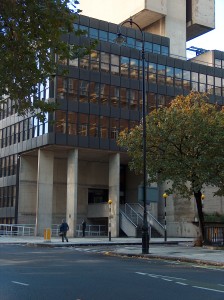The Language of Law Reform
IALS – Institute of Advanced Legal Studies, London
9 July 2019 (9.00am- 3.30pm)
In terms of the law reform perspective, it might be useful to recall Jeffrey Barnes’ assumptions about plain language and law reform: (i) ‘[t]he operation of legislation can only be fully understood in terms of its background.’ If an instrumental position is taken, the background can be seen to include recognition of a ‘problem’, determination of objectives, and the choice of means for their achievement; (ii) there are ‘inherent difficulties in the drafting of legislation’. The drafter is not a mere scribe, and drafting is affected by the environment of the Parliamentary process; (iii) the implementation of legislation can be enormously affected by various ‘filtering agents’ – rule enforcers, rule interpreters, and the population at whom legislation is directed. They can ‘constrain, adapt and modify the intentions and policies that may have motivated the passage of the legislation in the first place’; (iv) if the law maker or someone else wishes to know how the law in question has performed and the extent to which the goals of legislation have been met, the investigation will benefit from the adoption of a broadly ‘scientific’ approach (J. Barnes, ‘The Continuing Debate about “Plain Language” Legislation: A Law Reform Conundrum’, Statute Law Review, Vol. 27, No. 2, 2006, pp. 85-86).
The theme of law reform and the way meaning and text functions develop or might evolve in the process of text production is a crucial issue. Effective legislation is more likely to be accomplished when the efficacy of the drafted legislation is tested by linguistic and discoursal analysis of its outcomes. In fact, without the possibility of an immediate linguistic exchange, law reform may certainly lose a great deal of its potential and valuable results. The study of language and how it is constructed and employed has lessons for statutory drafters (as creators of law) at one end of the legal spectrum, and for legal advisers and courts (as interpreters of law) at the other. Systematic review and focused codification are steps in a legislative process which attempt to minimise misinterpretation and misapplication.
This was the theme of the 7th workshop on the “Legislative Drafting and Language” project that took place at the IALS on Tuesday 9th July 2019. Since 2013 Dr. Constantin Stefanou (Sir William Dale Centre for Legislative Studies, Academic Director and Director of Research Programmes, IALS), Prof. Helen Xanthaki and Giulia Adriana Pennisi have come to explore the crossroads between legislative drafting and language/linguistics and they have opened a new agenda for the Institute of Advanced Legal Studies: the use of teachings from linguistics in applications useful to legislative drafting. Since then, workshops on “Legislative Drafting and Language” have been organised at the IALS on an yearly basis. Other projects have been accomplished during this time such as publications and seminars at the Legislative Drafting Course, and others are still in progress.
Speakers at the workshop on The Language of Law Reform:
- Isabela Fairclough, Senior Lecturer, Linguistics, School of Humanities and Social Science, University of Central Lancashire
- Livia Lorenzoni, Research Assistant University of Roma Tre
- Ana Marrades, Senior Lecturer of Constitutional Law, University of Valencia
- Henni Ouahes, Law Commission UK
- Giulia Adriana Pennisi Professor, Linguistics, University of Palermo; Associate Research Fellow, IALS
- William Robinson, Associate Research Fellow, IALS
- Stephanie Theophanidou, Cardiff University and research assistant at the Law Commission UK
- Helen Xanthaki, Professor of Law, University College London, Senior Associate Research Fellow, IALS
They gave interesting insights on the general theme of Law Reform, providing the attendees at the event (mostly experts on legislative drafting from different countries) with different approaches on the important relations between language and legislative drafting/ legislative discourse.
Why the theme The Language of Law Reform?
The last decades have witnessed important innovations in legislative drafting particularly in common law systems. At this time one might wonder whether we have succeeded in producing perfect laws or not. The fact that a bill has passed into law does not automatically imply that its goals have been achieved. The quality of legislation is certainly affected by intrinsic drafting difficulties and the implementation of legislation may be considerably influenced by a various subjects at whom legislation is directed and who may constrain, adjust and in some cases alter the intentions that inspired and moved the legislation approved in the first place. Looking at other disciplines, such as linguistics, and others which deal with law and legislative drafting may be of some help for the legislative drafter who wants to know how legislation is practically produced and the extent to which its goals can be achieved.
Giulia Pennisi is Professor of Linguistics at the University of Palermo and an Associate Research Fellow at the IALS.

